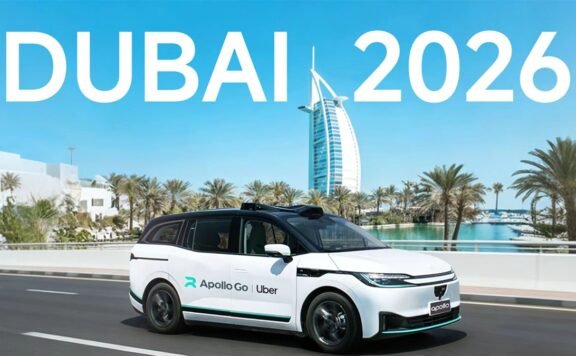Masdar, Abu Dhabi Future Energy Company, today unveiled the all-electric Eco-Bus at Abu Dhabi Sustainability Week 2018. A template for future sustainable public transport solutions, the working prototype was jointly developed by Masdar and Abu Dhabi-based Hafilat Industry in collaboration with the Masdar Institute, part of Khalifa University of Science and Technology. Technology partner Siemens provided the bus’s engine giving the vehicle a range of 150 kilometres per charge while minimising the size and weight of its battery.

The Eco-Bus will shortly undergo trials at Masdar City in Abu Dhabi as engineers evaluate the performance of its battery and electrical systems in the UAE’s arid conditions. Visitors to the Abu Dhabi National Exhibition Centre during ADSW will also be able to view the new Eco Bus.
“Urban sustainability will increasingly be defined by innovation in mobility, and Masdar City will be at the centre of this shift towards more sustainable transport solutions,” said Yousef Baselaib, Executive Director of Sustainable Real Estate at Masdar. “The Eco-Bus is an impressive example of homegrown clean-tech innovation and a model collaboration between UAE and international experts. Rolling out the Eco-Bus for use at Masdar City will hopefully inspire other UAE clean-tech innovators while enhancing the performance of electric buses in hot climates.”
Khalid Al Hashim, Executive Director for Surface Transport at Abu Dhabi Department of Transport, said: “We applaud the team behind this successful prototype and look forward to seeing the results of its performance tests. High temperatures throughout the year have been an obstacle to the wider use of electric vehicles in the Gulf, one the Eco-Bus promises to address. The Eco-Bus integrates with a number of sustainable mobility initiatives under way in Abu Dhabi and the UAE and complements the diversification goals of the UAE Vision 2021.”
The Eco-Bus reflects the global trend towards sustainable mobility, a key issue at ADSW 2018. On January 18, the ADSW Mobility Conference will convene global experts to debate insights and action on mobility issues, including new research released by Masdar in collaboration with Bloomberg New Energy Finance. Technologies and solutions are also on show at the Sustainable Transport Zone, an exhibition feature of the World Future Energy Summit.
According to the International Renewable Energy Agency (IRENA), headquartered in Masdar City, transport accounts for 30 per cent of total global energy consumption. Meanwhile, electric buses are entering ever wider use. IRENA’s 2017 Global EV Outlook estimates that the number of electric buses worldwide doubled between 2015 and 2016 to reach 345,000. A number of cities making up the C40 Cities Climate Leadership Group, which connects 90 world cities focused on tackling climate change through urban action, have also pledged to buy only emissions-free buses after 2025.
Iyad Al Ansari, Chief Executive Officer of Hafilat Industry, said: “We’re proud to be at the forefront of the UAE’s nascent sustainable mobility sector, working with both UAE and international partners. The Eco-Bus design is highly scalable, and we look forward to demonstrating the commercial viability of our prototype.”
The Eco-Bus has a lightweight aluminium body and uses more temperature-resistant, water-cool batteries located at its rear to enhance space efficiency. The bus has a range of up to 150 kilometres per charge when driven on a stop-start basis, longer if used continuously. The bus features both advanced air-conditioning and electrochromic windows to enhance shading.
At 10.5 metres in length, the Eco-Bus is slighter shorter than a classic double-decker bus, roughly the same width at 2.5 metres, and more than a metre lower at 3.2 metres. It seats 27 with safe-standing room for additional passengers. A low-entry floor offers easy boarding.
Masdar City has been a pioneer of sustainable mobility, introducing the world’s first permanent driverless Personal Rapid Transit (PRT) system in 2010, which had carried more than 2 million passengers by the end of 2016. An extension to the PRT system is currently being evaluated. Masdar Institute researchers advised the Eco-Bus design team on parts and materials, battery management, cooling, energy consumption, route planning and environmental impact auditing.
“This highly efficient traction motor technology is in operation around the world including Europe, North America and China, and we’re proud to be working with partners here in the UAE to develop the Eco-Bus for sustainable transport in the Middle East,” said Uwe Troeger, Senior Executive Vice President, Digital Factory and Process Industries and Drives, Siemens Middle East. “We believe strongly that co-creation and partnerships are key to encourage local innovation, and the Eco-Bus is a perfect example of what can be achieved with the right partners, technology and mindset.”






